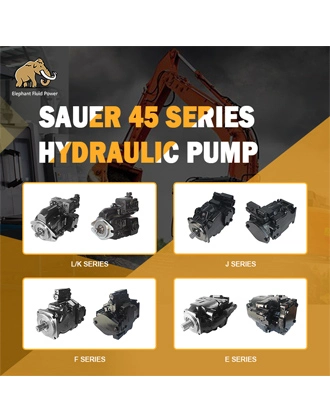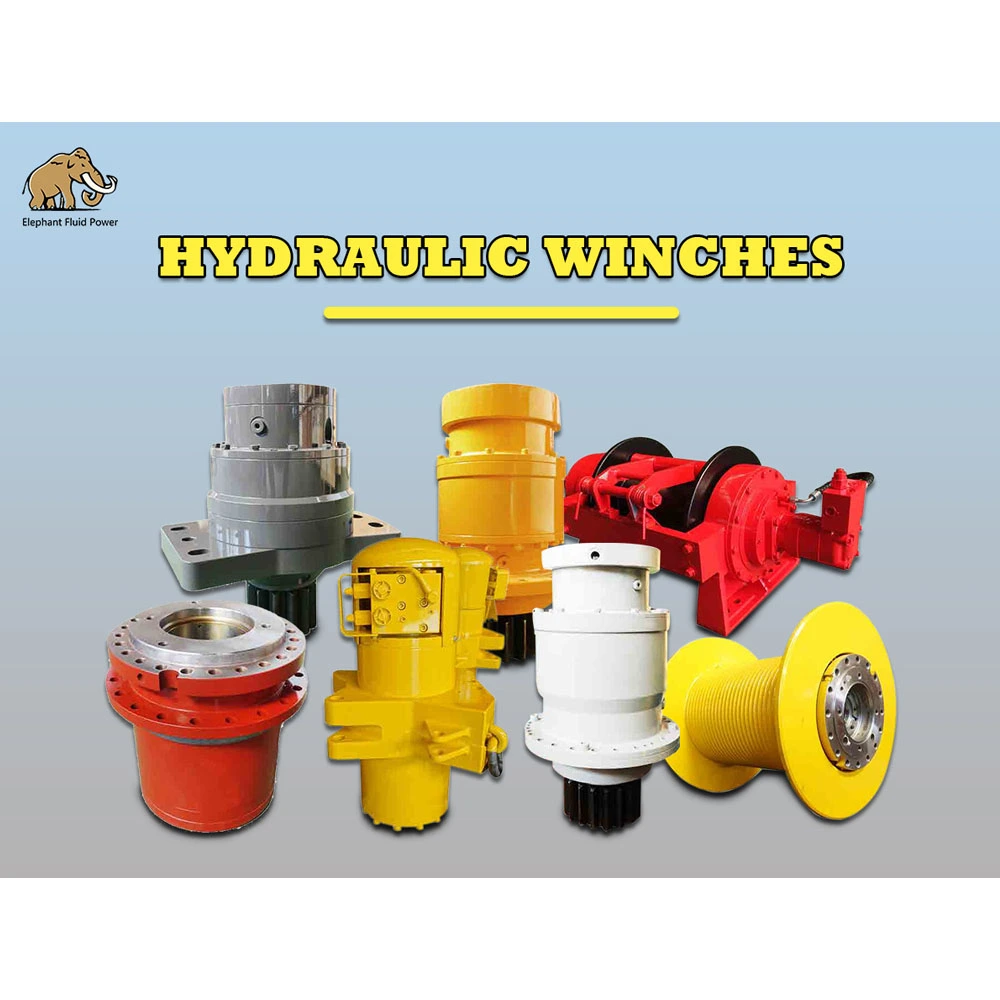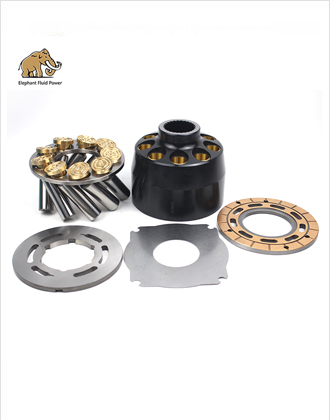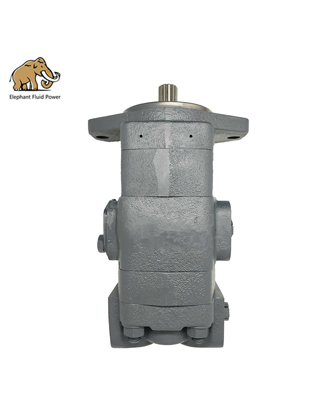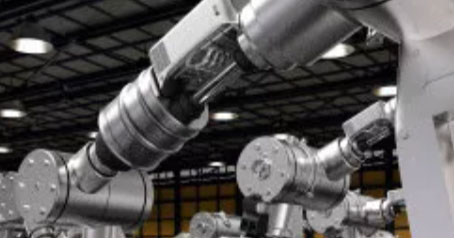Excavator pump as the power core of the hydraulic system, directly affecting the performance, efficiency and reliability of the equipment. The following is an analysis of the technical principles, mainstream types, brand comparison and selection suggestions:
First, the technical principle and core parameters
1, the principle of work
Mechanical energy → hydraulic energy conversion: through the reciprocating movement of the rotor / plunger to change the volume of hydraulic oil, generating pressure. For example, piston pump swash plate tilt angle changes drive the axial movement of the plunger to realize the suction and discharge process.
Key Equation:
Theoretical flow rate: Qt = V × n Q_t = V \times n Qt = V × n (displacement × speed)
Power: P = p × Q600 P = \frac{p \times Q}{600} P = 600p × Q (pressure × flow / 600, unit: kW)
2、Core Parameters
Displacement: output oil volume per revolution (e.g. 160-300ml/r), which directly affects the speed of oil supply.
Rated pressure: maximum pressure for continuous operation (e.g. 34MPa).
Peak pressure: the maximum pressure allowed briefly (e.g. 39MPa).
Speed: 2000-2500rpm commonly used for closed systems, 1800-2200rpm for open systems.
Volumetric efficiency: 92-96% of the standard for new pumps, below 85% need to be repaired.
Second, brand recommendation
1, Caterpillar (Caterpillar): high efficiency and durability, for high load conditions.
2, Kawasaki (Kawasaki): K3V series piston pump known for stability and cost-effective.
3, Rexroth (Rexroth): A2FE series of high-precision variable pump, precise control.
4, Baudouin (Baudouin): high-strength materials, suitable for extreme environments.
5、KSB:Multi-working condition adaptability, low failure rate.
Third, excavator pump performance advantages
1、Efficient energy saving
Through variable control technology, reduce unnecessary energy loss and improve fuel efficiency.
Optimize the matching of hydraulic system to reduce pressure loss and heat generation.
2、High reliability
Rigorous testing: through the durability test (such as 2000 hours continuous operation test) to ensure stability.
Sealing technology: adopts fluorine rubber seal to prevent oil leakage and adapt to high/low temperature environment.
3、Maintenance convenience
Modular design: pump body, bearings and other components can be replaced individually, reducing maintenance costs.
Troubleshooting: some models support pressure sensor monitoring, quickly locate the fault point.
Fourth, excavator pump application scenes
1、Earthwork: such as excavation, loading, leveling the site, need high flow hydraulic oil to drive the big arm, bucket.
2、Crushing operation: with the hydraulic crushing hammer, the pump needs to provide instantaneous high-pressure impact.
3、Special working conditions: such as plateau, extreme cold areas, JCB pumps through special materials and lubrication design to ensure performance.
Fifth, selection and maintenance recommendations
1、Selection of key points
2、Matching working conditions: according to the tonnage of equipment, the intensity of operation to choose the displacement (such as micro-machine 80ml/r, large machine > 400ml/r).
3、Pressure redundancy: the rated pressure needs to be 10-15% higher than the maximum demand of the system.
4, speed matching: to avoid excessive speed leading to cavitation (such as plateau operations need to lower speed).
Best hydraulic pump for excavators
Excavator hydraulic pump types
Excavator hydraulic pumps
 French
French
 Portuguese
Portuguese
 Russian
Russian
 German
German
 Spanish
Spanish
 Japanese
Japanese
 Korean
Korean
 Irish
Irish
 Greek
Greek
 Turkish
Turkish
 Italian
Italian
 Danish
Danish
 Romanian
Romanian
 Indonesian
Indonesian
 Czech
Czech
 Afrikaans
Afrikaans
 Swedish
Swedish
 Polish
Polish
 Basque
Basque
 Catalan
Catalan
 Esperanto
Esperanto
 Hindi
Hindi
 Lao
Lao
 Albanian
Albanian
 Amharic
Amharic
 Armenian
Armenian
 Azerbaijani
Azerbaijani
 Belarusian
Belarusian
 Bengali
Bengali
 Bosnian
Bosnian
 Bulgarian
Bulgarian
 Cebuano
Cebuano
 Chichewa
Chichewa
 Corsican
Corsican
 Croatian
Croatian
 Dutch
Dutch
 Estonian
Estonian
 Filipino
Filipino
 Finnish
Finnish
 Frisian
Frisian
 Galician
Galician
 Georgian
Georgian
 Gujarati
Gujarati
 Haitian
Haitian
 Hausa
Hausa
 Hawaiian
Hawaiian
 Hebrew
Hebrew
 Hmong
Hmong
 Hungarian
Hungarian
 Icelandic
Icelandic
 Igbo
Igbo
 Javanese
Javanese
 Kannada
Kannada
 Kazakh
Kazakh
 Khmer
Khmer
 Kurdish
Kurdish
 Kyrgyz
Kyrgyz
 Latin
Latin
 Latvian
Latvian
 Lithuanian
Lithuanian
 Luxembourg
Luxembourg
 Macedoniar
Macedoniar
 Malagasy
Malagasy
 Malay
Malay
 Malayalam
Malayalam
 Maltese
Maltese
 Maori
Maori
 Marathi
Marathi
 Mongolian
Mongolian
 Burmese
Burmese
 Nepali
Nepali
 Norwegian
Norwegian
 Pashto
Pashto
 Persian
Persian
 Punjabi
Punjabi
 Serbian
Serbian
 Sesotho
Sesotho
 Sinhala
Sinhala
 Slovak
Slovak
 Slovenian
Slovenian
 Somali
Somali
 Samoan
Samoan
 Scots Gaelic
Scots Gaelic
 Shona
Shona
 Sindhi
Sindhi
 Sundanese
Sundanese
 Swahili
Swahili
 Tajik
Tajik
 Tamil
Tamil
 Telugu
Telugu
 Thai
Thai
 Ukrainian
Ukrainian
 Urdu
Urdu
 Uzbek
Uzbek
 Vietnamese
Vietnamese
 Welsh
Welsh
 Xhosa
Xhosa
 Yiddish
Yiddish
 Yoruba
Yoruba
 Zulu
Zulu

